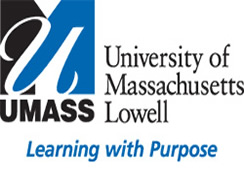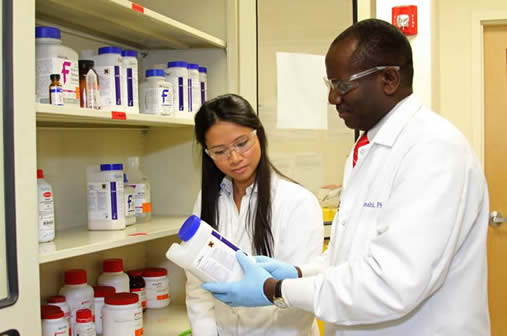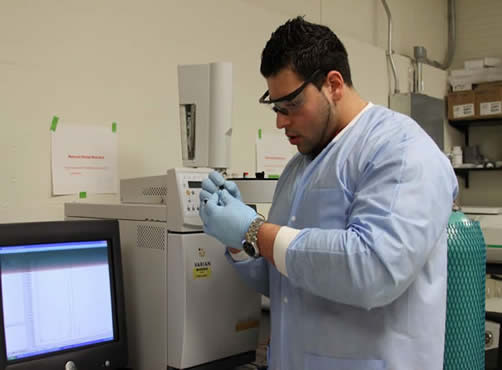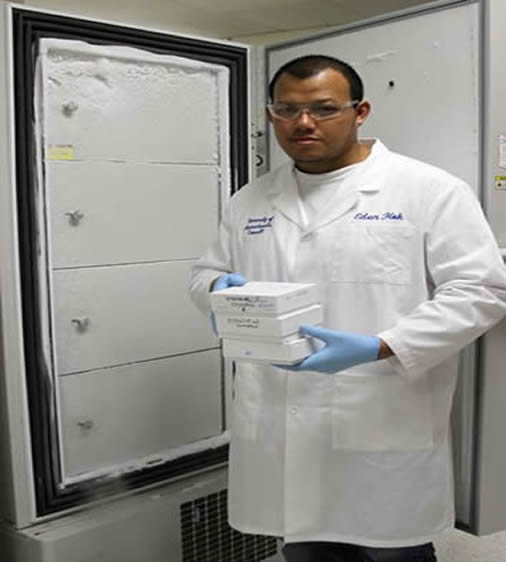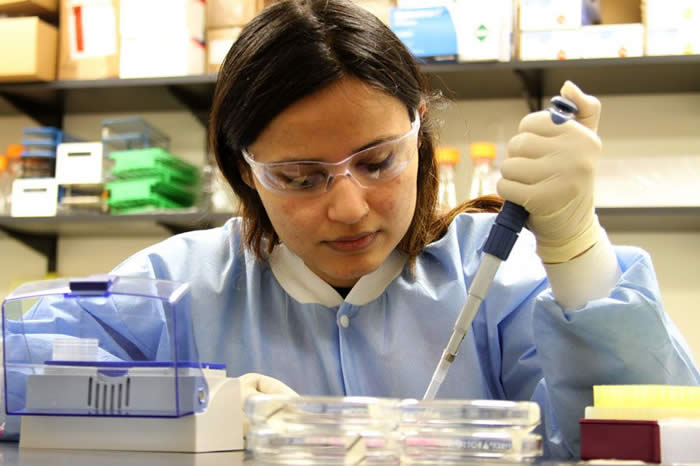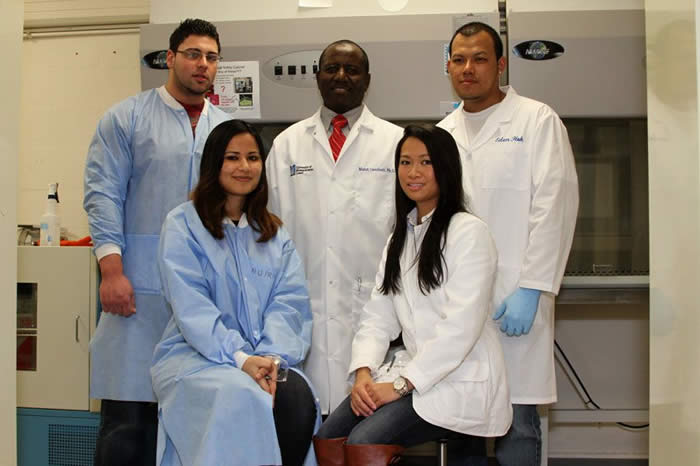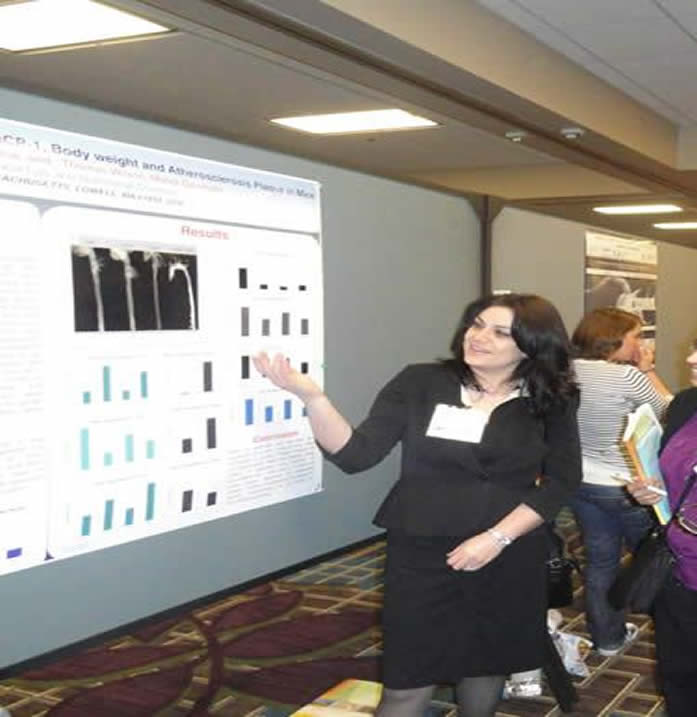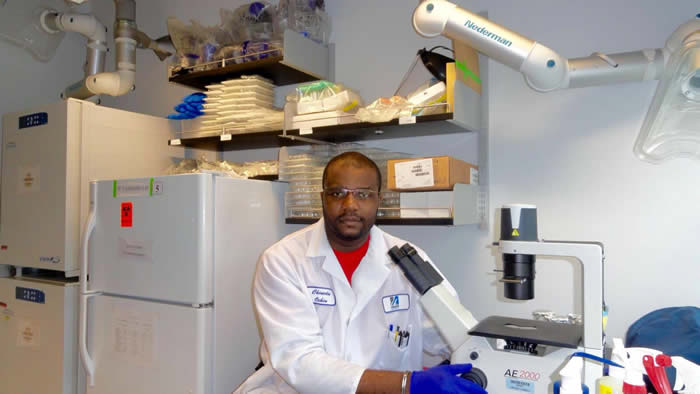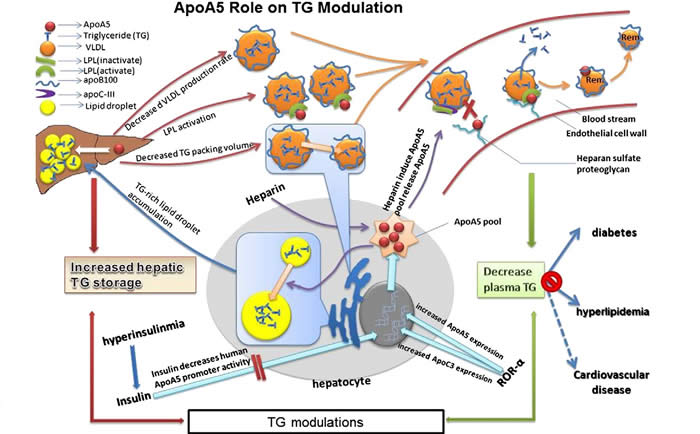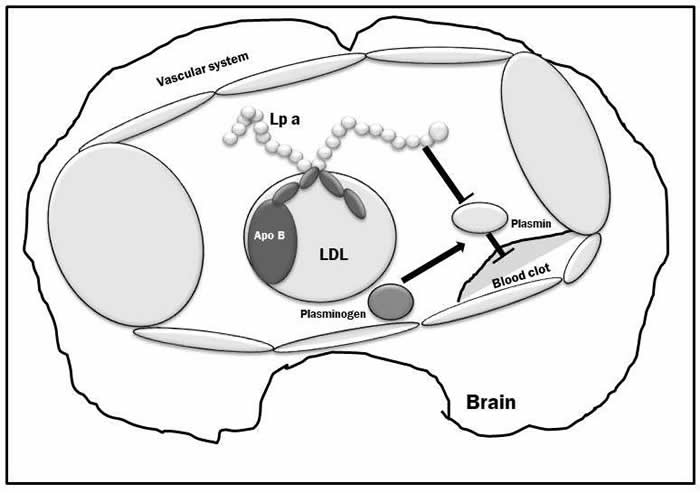|
Research
Our research focuses on the role of oxidative stress,
inflammation and lipoproteins modification in atherosclerosis and related
metabolic disorder syndromes. Technical Expertise Our Current Technical expertise includes but not limited to the following
Animal models:
Instrumentation:
Software:
Center for Population Health Core Laboratory Garelnabi Research Group is also the Core Lab for the Center for the Health Population. The laboratory
core provides analysis of nutrients, biomarkers and clinical Laboratory measurements.
Laboratory,
located at the new UMass
Lowell's Emerging Technologies and Innovation Center (ETIC).
Services include
Metabolic Biomarkers
Clinical Chemistry Methods Method verifications and Validation Studies The Core Lab can also perform new and existing method verifications and validations studies for 510K submission.
Quality Assurances Team
Undergraduate students
Rhea Cabrera Andrew Carvalho
Eden Hok
Students completed undergraduate senior research projects: The following undergraduate students have completed research training/projects in Garelnabi Research Lab:
Anupriya Singh MS (spring 2011)
Rsearch Group photo 2010 ******************************************************************************************************************************************************************************************************************************************************
Graduated Lab Members Halleh Mahini Doctorate of Philosophy in Biomedical Engineering and Bitechnology, May 2015.
Education:
PhD Biomedical Engineering & Biotechnology, May 2015
MS Biomedical Engineering & Biotechnology 2011 University of Massachusetts Lowell
B.S. Biological Sciences, 2008 University of Massachusetts Lowell
Halleh Mahini presenting her work at the American Heart Association meeting in Chicago 2013 ************************************************************************************************************************************************************************************************************* Current Master Students 2016- : Aza Elshiekh Ibrahim Ahmed Alkhadra Nadia Alghamdi Osama Ahmed *********************************************************************************************************************************************************** Doctoral Students
Chinedu C. Ochin, MBBS, MS.,
EDUCATION University of Massachusetts-Lowell PhD Candidate (Biomedical Engineering and Biotechnology) (Anticipated) 2017/18 MS (Biomedical Engineering and Biotechnology) May 2014 Ebonyi State University-Nigeria MBBS (Medicine and Surgery) Sept 2006
************************************************************************************************************************************************************************************************************** Awards and Recognitions Undergraduate students who received Robert Niclosi Research Awards:
Graduate students who received graduate Research Awards:
------------------------------------------------------------------------------------------------------------------------------------------------------------------------------ Recently Published Images from the Lab
Clin Biochem. 2013 Jan;46(1-2):12-9.
Fig. (2). Possible mechanism of Lp(a) in stroke. Shows a simplified schematic of the possible connection between Lp(a) and stroke. The |

